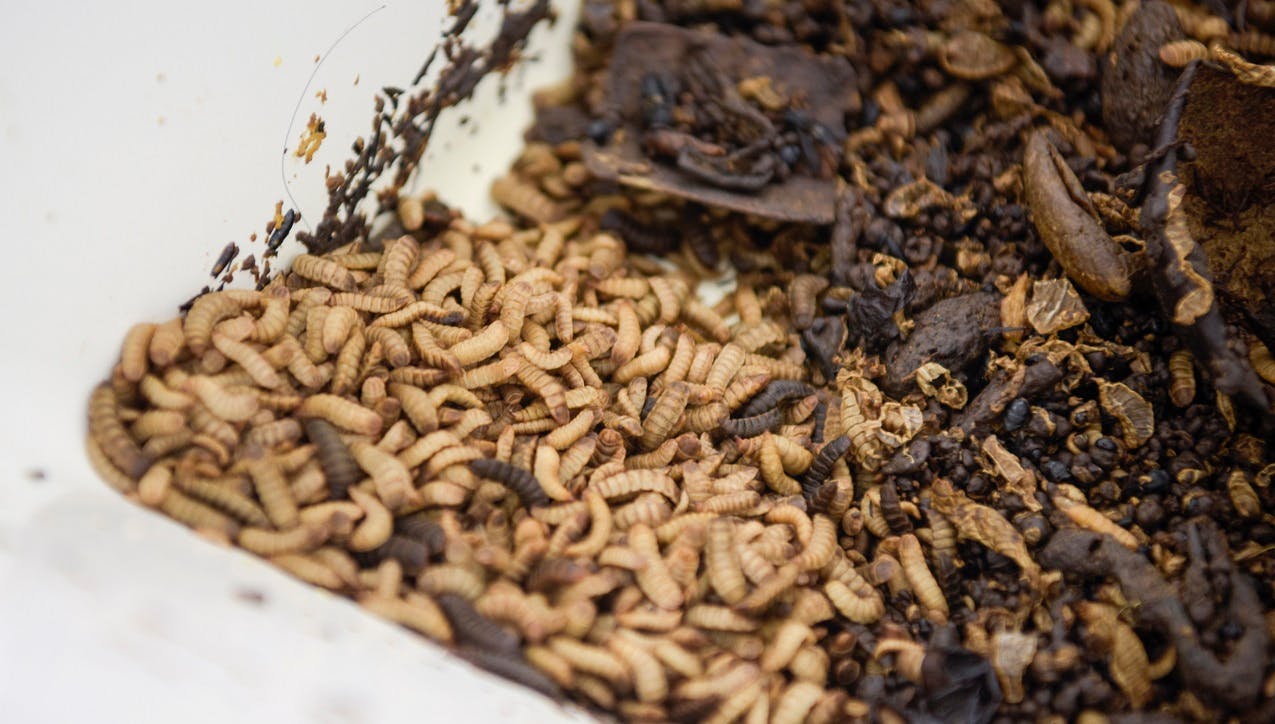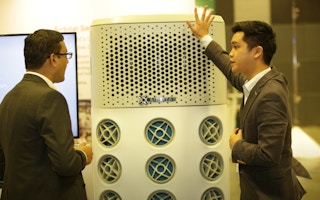It makes business sense to live in a planet where food is plentiful, the air is clean, and growth does not mean depleting the world’s natural resources.
This was the message for visitors to the Sustainable Solutions Expo at the Ecosperity conference in Singapore in June, where local and international businesses displayed sustainable solutions in the areas of food, agriculture, water, recycling, remanufacturing and technology.
Temasek, the organiser of Ecosperity, called on people to make a pledge for lifestyle changes to contribute towards a more sustainable future.
Using the Ecosperity app, exhibit presenter Chan Kah Mun invited people to make pledges to change their consumption habits as an individual, and on behalf of their organisation. They were also invited to create their own pledges. Examples of these included observing Meatless Mondays and buying an electric car.
Consumers who support sustainable business are the missing piece of the puzzle in creating a sustainable society, Chan said.
Businesses in Asia are waking up to the opportunities outlined in last year’s Better Business, Better World report. The report, produced by the Business and Sustainable Development Commission, showed that Asian businesses could make up to US$5 trillion by working on solutions to achieve the United Nations Sustainable Development Goals.
“
Even if businesses say they want to sell more sustainable products and services, if the consumers do not play their part, then we will not be able to make it work.
Evelyn Koh, head of business development, Sustainable Green Solutions
Making sustainability pay
Singapore’s Apollo Aquarium breeds fish in indoor vertical farms. Water quality in each tank is adjusted with laser-precise detail to the needs of individual species to produce fuller, heavier and tastier seafood.
S. Koban, Apollo Aquarium’s director for group projects, assures visitors that their seafood tastes as good as that harvested from the sea—but without reducing fish stock. “We plan to harvest about 2,000 tonnes of fish per year, and that can feed a lot of people,” he said.
To fight food waste, scientists at the National University of Singapore are breeding black soldier flies. Their larvae feed on discarded food and produce waste that is used as fertiliser, and the larvae themselves are turned into animal food.

Black soldier fly larvae feed on waste food, which is turned into fertlizer. Image: Temasek Ecosperity Foundation
Even fossil fuel company Shell believes it has a role to play in creating a more sustainable future. It showcased its low-carbon energy-efficient solutions, which it has helped start-ups to develop under its IdeaRefinery business programme.
Programme manager Thio Chin-Wui said Shell cares about the SDGs. “We have built the Goals into our business operations. To that end, Shell has launched several programmes that support energy start-ups in Singapore and all around the world,” he said.
One such start-up is Solarite, which invented a solar panel module that harvests solar energy without trapping heat. Business manager Calvin Ong said that by filtering out the heat, the solar cells last longer.
The role of the consumer
But businesses say they can only do so much. Without consumers adopting a sustainable lifestyle—whether by eating farmed seafood or using less plastic—the transition to a sustainable future is not guaranteed.

Food packaging made from bagasse, sugarcane fibre. Image: Eco-Business
“Even if businesses say they want to sell more sustainable products and services, if the consumers do not play their part, then we will not be able to make it work,” said Evelyn Koh, head of business development at Sustainable Green Solutions, a company that sells take-away food packaging made from bagasse, a sugar cane fibre.
But for 23-year-old student Nurul Aisyah, who visited the exhibition area at Ecosperity, there is hope for a sustainable future. “It is really promising to see that we are moving forward in terms of how we live our lives and how we approach consumption,” she said.
Wilson Ang, executive director of Global Compact Network Singapore, which organised the expo, said that businesses have tapped only a fraction of the trillion-dollar sustainable business opportunity. He said he hopes that more small-to-medium sized companies—which make up the bulk of businesses in Asia—will see the value in sustainability.
“Smaller enterprises should realise their advantage is that they are actually more nimble than bigger conglomerates. They can quickly tap into the 17 SDGs, and therefore can be better suppliers to bigger businesses and attract the growing community of impact investors,” he said.












